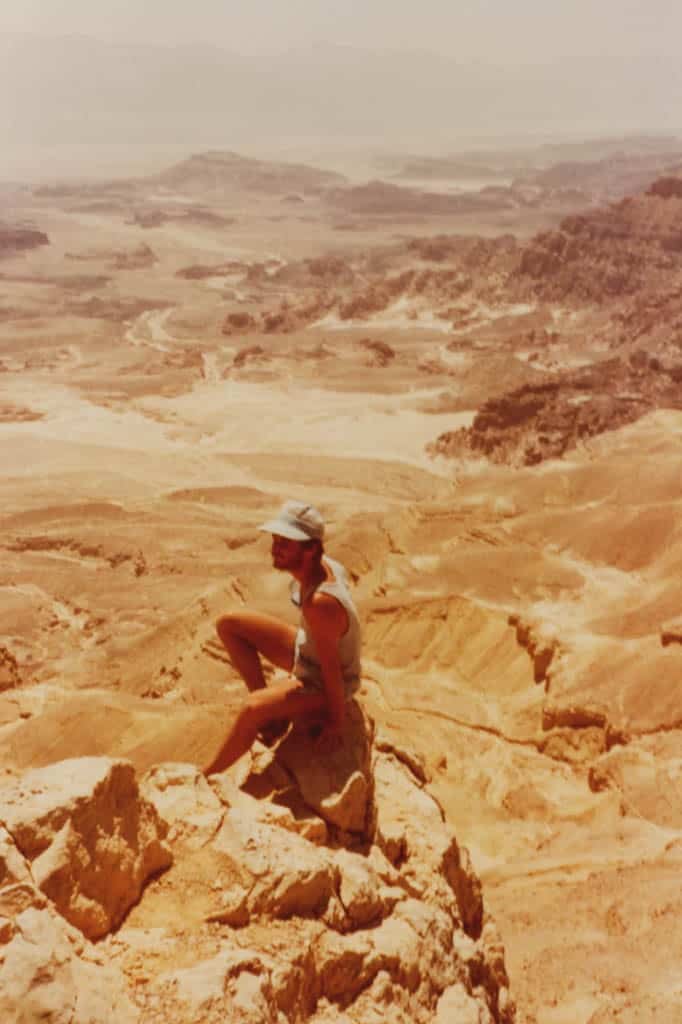
The desert, with its vast and desolate landscapes, has long been a symbol of both challenge and enlightenment. Its unyielding terrain, where the heat of the sun and the cold of the night combine to create a world that seems inhospitable, has nurtured a deep spiritual connection for those who have called it home. For centuries, people living in the deserts of the Middle East and North Africa have cultivated an extraordinary understanding of the land, sky, and the unseen forces that govern the harsh environment. Desert spirituality is not only about survival, but also about connecting to something much deeper—an intrinsic knowledge that ties the individual to the land and the divine forces at work in nature.
Bedouins: Masters of the Desert
The Bedouins, desert dwellers of the Middle East and North Africa, have spent thousands of years navigating the harsh desert environment. Unlike modern explorers with GPS devices, the Bedouins rely on an innate sense of direction and their spiritual connection to the land. They read the desert like a sacred map, interpreting the subtle signs of nature—the patterns in the sand, the alignment of the stars, and the movement of the wind. Their survival depends not only on practical knowledge, but also on an understanding of desert spirituality that has been passed down through generations.
The Bedouins' spiritual beliefs are rooted in the desert itself, with its vast emptiness offering a space for profound reflection. To them, the desert is not a barren wasteland but a living entity, one that provides guidance and wisdom for those willing to listen. In Bedouin culture, the desert is seen as a mirror of the soul, reflecting both its trials and its transcendent beauty.
Navigating the Desert Through Spiritual Insight
Navigating the Desert Spirituality is not just a physical act, but a spiritual journey. For the Bedouins, the desert teaches valuable lessons about patience, humility, and the delicate balance between man and nature. The shifting sand dunes represent the transient nature of life, where nothing remains fixed, and everything is subject to change. The desert, with its harsh beauty, forces its travelers to confront their own inner landscapes, making the journey one of both external and internal discovery.
In this environment, the Bedouins rely on more than just physical skills—they also rely on a spiritual intuition that helps them find their way. They use the stars to guide them, learning the positions of the constellations and how they change with the seasons. The moon, too, plays a vital role in guiding their path. This connection to the cosmos is a key aspect of desert spirituality, where the universe itself is viewed as a vast, interconnected web that influences every part of life.
The Role of Silence and Solitude
One of the most striking features of the desert is its silence—a quiet so profound that it can feel almost sacred. In this solitude, the desert offers a space for introspection and contemplation. For those who spend time in the desert, it becomes a place of spiritual renewal, where the distractions of everyday life fall away, and the individual can connect with the divine. The silence of the desert is not empty; rather, it is filled with the presence of something greater. It is in this stillness that the desert reveals its spiritual power, offering clarity and insight to those who are open to receiving it.
In many cultures, silence is seen as a pathway to wisdom, and the desert, with its profound quiet, serves as the perfect environment for spiritual awakening. The Bedouins, too, understand this, using the stillness of the desert to deepen their connection with the divine and to gain clarity on life's most important questions.
The Desert as a Metaphor for Spiritual Growth
The desert has long been a metaphor for spiritual growth in many cultures. Its barren landscapes, with their harsh conditions, represent the trials and tribulations that one must endure on the path to enlightenment. Just as the desert appears lifeless on the surface but teems with life beneath the sand, spiritual growth often requires perseverance through adversity. The journey through the desert is a metaphor for the spiritual journey—one that requires endurance, faith, and the ability to find meaning even in the most challenging circumstances.
For the Bedouins and others who live in the desert, spiritual growth is intertwined with the land itself. Their understanding of the desert is not purely physical; it is deeply spiritual, grounded in a belief that the land has its own wisdom to impart. As they navigate the desert, they are not just following physical markers but are also attuned to the unseen energies that guide them along their path.
Desert Spirituality: A Universal Connection
Although desert spirituality has its roots in the Middle East and North Africa, its principles are universal. The lessons of the desert—resilience, patience, introspection, and spiritual awakening—can be applied to any life journey. The desert is a place of profound contrast, where the extremes of heat and cold, light and darkness, offer a powerful metaphor for the balance between opposites that exists within the human soul.
In many ways, the desert serves as a mirror for those who seek spiritual insight. Just as the desert can seem barren at first glance, it is filled with hidden treasures for those who are willing to look beyond the surface. The desert, like the spiritual journey, invites us to see past the illusions of the material world and connect with something deeper, something eternal.
Conclusion
Desert spirituality is a profound and timeless connection between the land and the spirit. For the Bedouins and others who call the desert home, the land is not just a place to survive—it is a place to thrive spiritually. By learning to navigate the desert with an open heart and a deep respect for its power, individuals can gain insight into their own spiritual path and connect with the divine forces that shape their lives. The desert, in all its harshness and beauty, offers a powerful reminder that spirituality is not just a destination, but a journey that unfolds with each step.


























